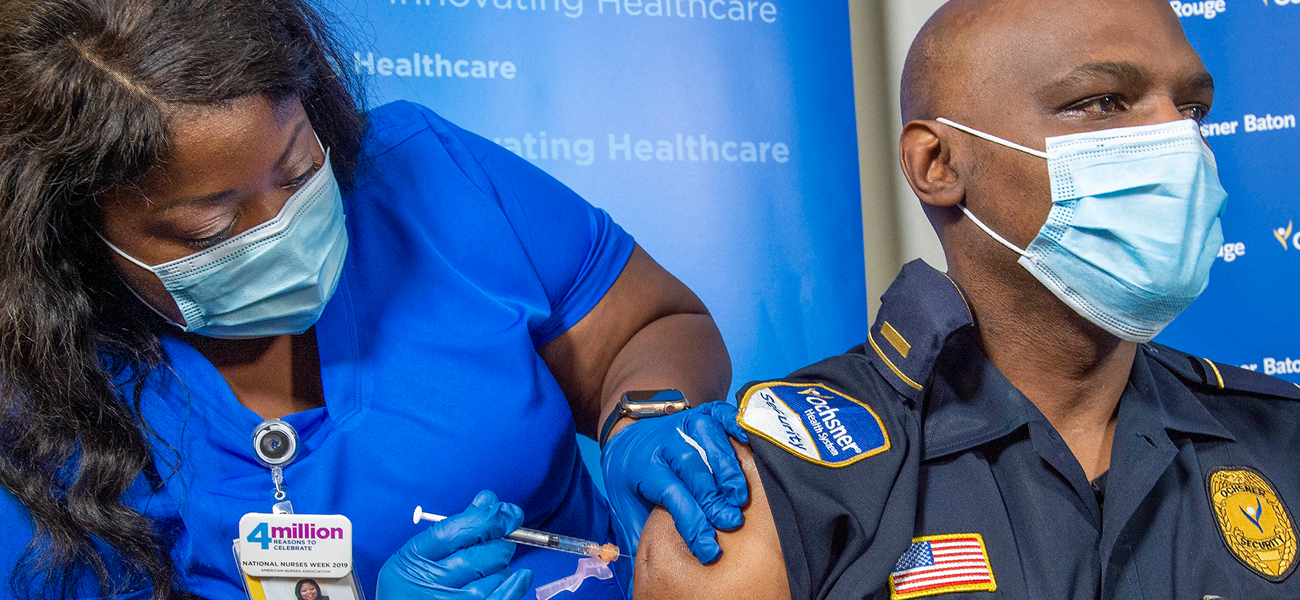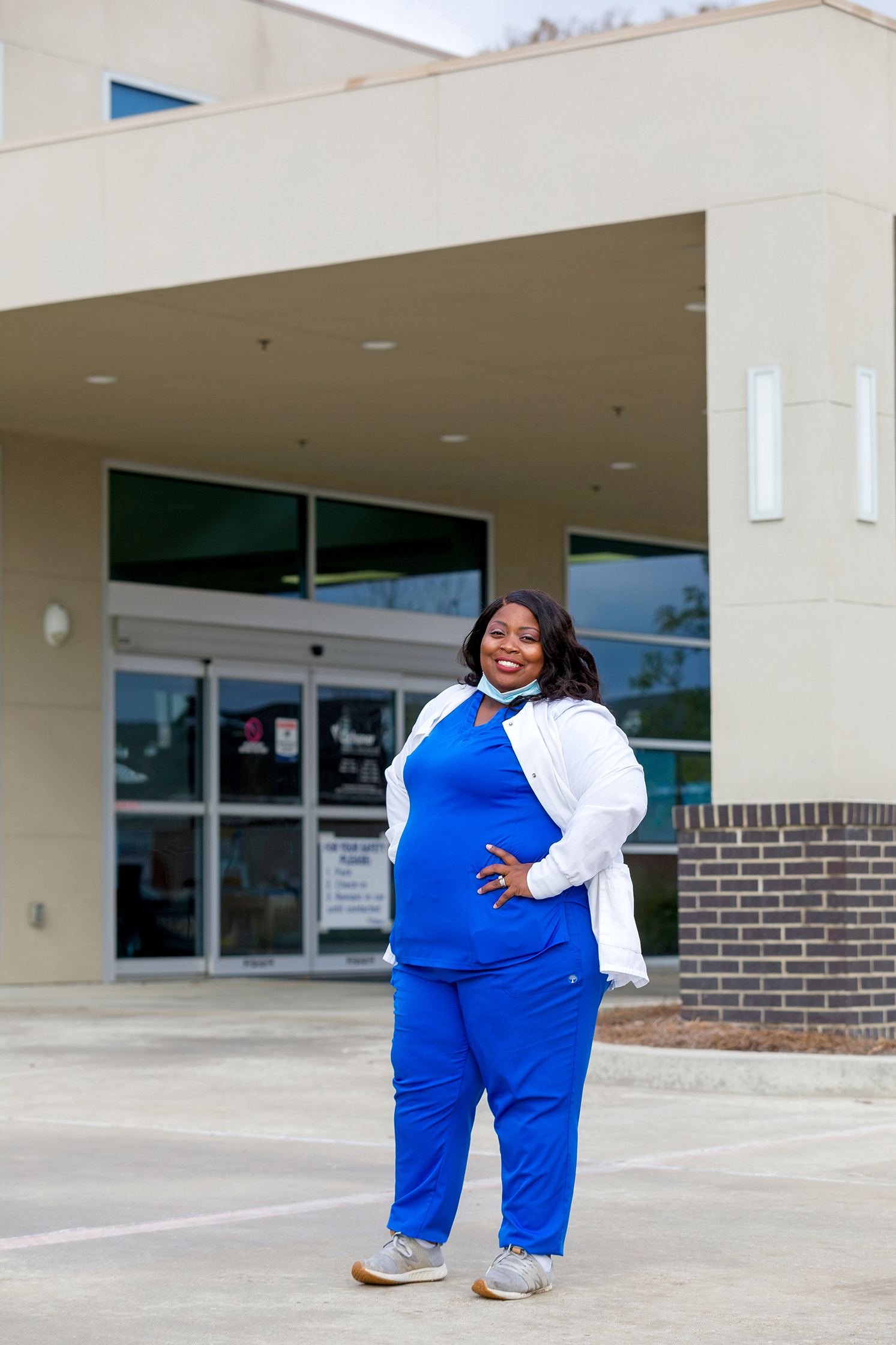
What it was like for one local nurse to administer the city’s first COVID-19 vaccines
On the morning of Dec. 15, Meshoca Williams got ready for work as normal. She showered and got dressed. She did her makeup. And then—her kids filmed a TikTok video.
After all, they had to record the beginning of their mom’s big day. Williams’ family cheered her on before she drove to Ochsner Medical Center, where she would administer the first COVID-19 vaccine doses in Baton Rouge.
Over at Ochsner, cameras would roll again. But this time, it was press cameras clicking and Williams’ medical colleagues cheering. It felt like the whole city was watching as Williams administered many of the first doses of Pfizer’s vaccine to employees at the medical center.
|
|
Williams proved herself capable of taking on new responsibilities and adapting to challenges during the pandemic, which is why her supervisor asked her to work in the vaccine clinic.
The city’s first health care workers to get the vaccine were full of emotion and gratitude. But Williams’ favorite reaction was from pharmacist Joan Broussard.
“She and I just laughed and laughed. She just kept telling me thank you. And I said, no, thank you,” Williams recalls.
The vaccine is hope in a bottle for Williams and her coworkers. They have felt the crushing weight of working on the pandemic’s frontlines for nearly a year.
Williams, 35, has been a licensed practical nurse for 12 years. It’s a job she’s cherished, as she’s gotten to show her patients compassion and love. But 2020 was trying, watching people die isolated in their hospital beds. Many didn’t even get to say goodbye to their loved ones, she says.
Even as the vaccine rollout is underway, Williams still equates going to work with entering a battlefield. State hospitalizations hit record highs in January, and a new, more contagious variant of the virus has begun spreading in the U.S.
Williams knows firsthand what her patients are going through. In September, her own COVID-19 diagnosis led to pneumonia. The whole time she was sick, she had one thought in mind: “Let me get better, so I can go back to work and help my friends,” she says. “We are at war.”
Last year, her mother was also diagnosed with the virus, and her 78-year-old grandfather became so ill with the disease they had to break the door down to get him out of the house. Both are still having lingering side effects.
But the end of the nightmare seems finally within sight. By the time you read this story, Williams will have received both doses of the Pfizer vaccine.
But there’s an even bigger date Williams can’t stop thinking of.
April 23 is when she’ll become the first person in her family to graduate with a bachelor’s degree.
When she gets her vaccine, one vision will dance through her head: her five children, plus her mom, aunt and grandfather, watching her walk across the stage for graduation.
It seems almost too much to hope for. She wipes away tears as she imagines it.
“Graduation is supposed to be a joyous time to celebrate with your family. I stood on all of their shoulders to get where I am today,” she says. “It takes a village, and they are the village I need at that graduation.”
This article was originally published in the February 2021 issue of 225 magazine as our monthly “I am 225” feature.
|
|
|



